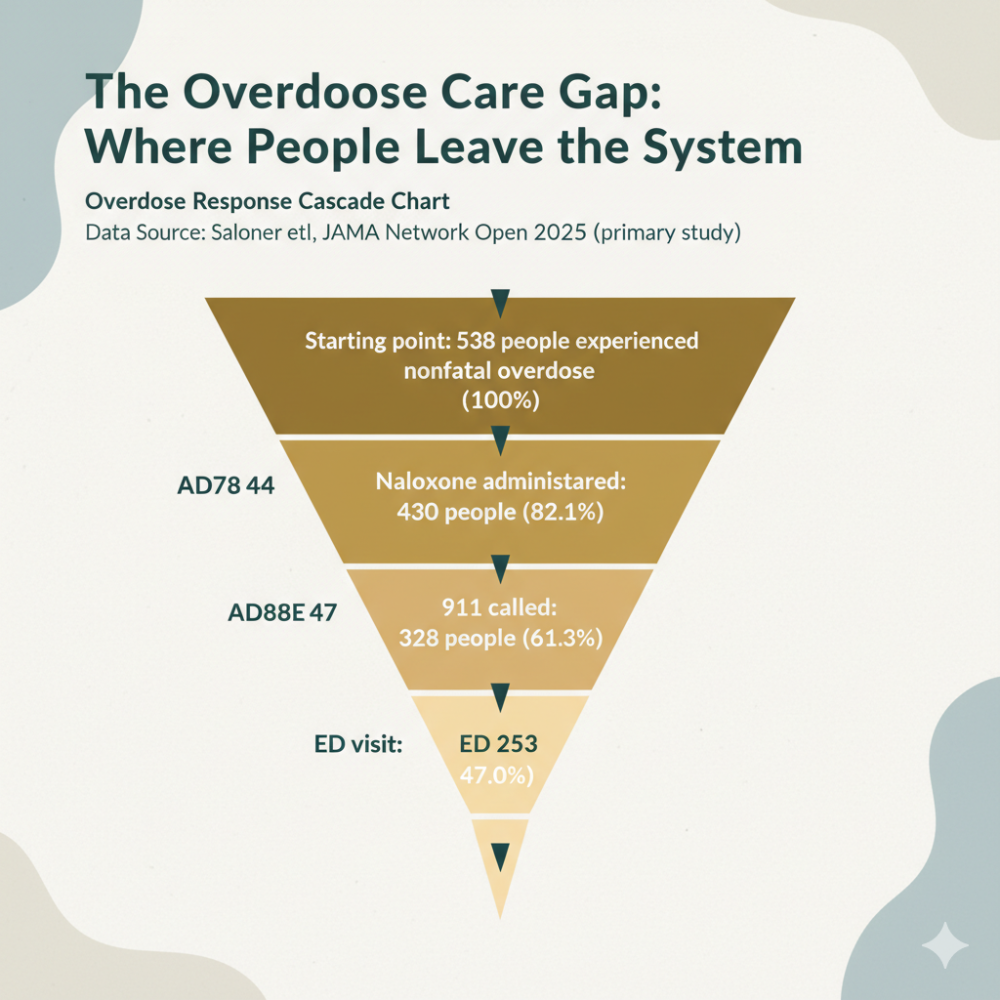The Dangers of Combining Gabapentin & Alcohol
Navigating the delicate balance between prescribed medication and alcohol consumption is a critical aspect of ensuring personal safety and maintaining health. Similar to the risks associated with mixing Ativan (lorazepam) and alcohol, the combination of gabapentin and alcoholic beverages poses significant dangers. Gabapentin, although used to treat a variety of conditions from nerve pain to social anxiety, can lead to life-threatening consequences when mixed with alcohol.
How Alcohol Affects the Brain
Alcohol, upon consumption, undergoes rapid absorption from the gastrointestinal tract into the bloodstream. Once it reaches the brain, its effects are both immediate and complex. Here’s a more detailed look at its neurological impact:
Neurotransmitter Modulation
Alcohol functions as a neuromodulator and has a broad impact on neurotransmitters, the brain’s chemical messengers. It enhances the inhibitory neurotransmitter GABA’s effect, leading to a depressive action on brain activity which can result in the feelings of calm and relaxation many drinkers seek. At the same time, alcohol inhibits the excitatory neurotransmitter glutamate, preventing it from increasing neural activity and excitability.
Dopamine Release
Alcohol also increases the levels of dopamine within the brain’s reward circuitry. This surge in dopamine creates a pleasurable sensation that can reinforce drinking behavior, contributing to the development of alcohol dependence. The acute rewarding effects of alcohol can be powerful, encouraging repeat consumption and potentially leading to addiction.
Cognitive and Motor Impairment
In higher doses, alcohol’s dampening effect on the central nervous system can lead to impaired cognitive functions and motor skills. This is due to the decreased activity in the cerebral cortex and cerebellum, areas of the brain responsible for thinking, planning, and motor coordination.
Emotional Regulation and Behavioral Changes
The amygdala, a brain region involved in emotion processing, is also affected by alcohol. This can lead to decreased anxiety and inhibitions but can also impair judgment, leading to increased risk-taking or aggressive behaviors.
Long-Term Effects of Alcohol
Chronic alcohol use can lead to neuroadaptation, where the brain attempts to compensate for the continuous depressive effects of alcohol. Over time, this can lead to changes in brain structure and function, contributing to the development of tolerance (needing more alcohol to achieve the same effect) and dependence (experiencing withdrawal symptoms without alcohol).
Understanding Gabapentin
Gabapentin is a pharmaceutical agent that also modulates the Gabaergic system, although its exact mechanism of action is not fully understood. It is classified as an anti-epileptic drug but is widely used off-label for various conditions related to neuropathic pain and certain types of anxiety disorders.
Gabapentin and GABA
Gabapentin is believed to interact with the production or function of GABA, enhancing its calming effects. This can lead to decreased neuronal activity which is particularly useful in conditions like epilepsy, where excessive neuronal firing is a problem.
The Effects of Gabapentin
Gabapentin’s impact on the nervous system can manifest in several therapeutic effects, including pain relief, reduction in seizure frequency, and anxiety alleviation. These benefits, however, come with a range of side effects such as:
- Dizziness
- Fatigue
- Coordination Problems
Risks and Side Effects of Gabapentin
While gabapentin is effective for managing specific health issues, its use is associated with side effects ranging from mild to severe. These can include sleep disturbances, lower extremity swelling, and in rare cases, serious allergic reactions or increased suicide risk.
The Dangers of Mixing Gabapentin and Alcohol:
When gabapentin, a medication prescribed to manage nerve pain and control seizures, is mixed with alcohol, the resulting effects can pose serious health risks. Both substances independently have a depressive impact on the central nervous system, but when combined, the intensity of these effects is significantly heightened.
Exacerbation of Side Effects
Gabapentin and alcohol can both cause drowsiness, dizziness, and a decrease in motor coordination. When taken together, these side effects can become more pronounced, leading to extreme sedation or even the inability to perform routine tasks safely. The potential for accidents and injuries skyrockets, as does the likelihood of engaging in dangerous activities such as driving under the influence.
Increased Risk of Overdose
Alcohol can change the way the body metabolizes gabapentin, potentially leading to higher levels of gabapentin in the bloodstream than intended. This unintended increase can push the user towards overdose territory, where they may experience double vision, slurred speech, and lethargy.
Cognitive Impairment:
Both alcohol and gabapentin can impair cognitive functions. When combined, this effect is amplified, causing significant impairments in memory, judgment, and the ability to make sound decisions. This cognitive decline can have a drastic impact on both personal and professional life and may result in making harmful choices.
Emotional and Mental Health Risks:
Individuals with pre-existing mental health conditions may find that the combination of gabapentin and alcohol worsens their symptoms. Gabapentin can affect mood and emotional states, and when alcohol is added to the mix, it can lead to heightened anxiety, depression, or other mood disturbances. This combination can also negate the benefits of gabapentin prescribed for mental health-related issues, such as anxiety disorders.
Withdrawal Complications:
Those who use gabapentin and alcohol together regularly may find that stopping suddenly can lead to withdrawal symptoms that are more intense than from either substance alone. Withdrawal can be physically uncomfortable, dangerous, and should be managed by medical professionals.
The dangers of combining gabapentin with alcohol are multifaceted and severe. They extend beyond the risk of immediate side effects to include long-term health risks and potential complications with mental health and withdrawal. It is vital for individuals taking gabapentin to abstain from alcohol and for those who are struggling with the combination to seek professional medical assistance to safely discontinue use.
Necessary Precautions & Preventive Measures
It is imperative for individuals prescribed gabapentin to abstain from alcohol consumption. The intensified effects of combining the two can have unforeseen and potentially hazardous outcomes, even with a normal therapeutic dose of gabapentin.
Prevention of adverse effects when taking gabapentin starts with avoiding alcohol. For those dealing with substance misuse or dual diagnosis involving gabapentin and alcohol, professional help is essential. Recovery programs that offer medically supervised detox can provide the support needed to navigate back to health.
Gallus Can Hep
If you or a loved one is struggling with alcohol, know that there is hope and help available. At Gallus Medical Detox Centers, we provide a comprehensive path to recovery through medically supervised detoxification. Our individualized approach and medical expertise lay the groundwork for a respectful and secure transition to sobriety.
We encourage you to take the essential first step towards reclaiming your life by getting in touch with us. Our self-assessment tool is designed to help you recognize the extent of care you may need. Don’t wait to seek the support you deserve. Contact Gallus Medical Detox Centers today and begin your journey to a life free from dependence. Reach out at 866-272-5978 and let us assist you on the path to a healthier, substance-free future.
FAQs about Gabapentin and Alcohol
Can I drink alcohol while taking gabapentin?
It is strongly advised not to drink alcohol while taking gabapentin. Alcohol can increase the nervous system side effects of gabapentin such as dizziness, drowsiness, and difficulty concentrating. In some cases, it can also lead to impairment in thinking and judgment.
What might happen if I mix gabapentin with alcohol?
Mixing gabapentin with alcohol can intensify the side effects of both substances. This means you might feel extremely sleepy, dizzy, or might have trouble with normal thinking and motor coordination.
How long after taking gabapentin can I drink alcohol?
The timing can vary based on individual factors like your dosage, how long you’ve been on the medication, and your overall health. It’s best to discuss this with your healthcare provider to determine a safe time frame, but generally, it’s wise to avoid alcohol altogether while on gabapentin.
Will a little bit of alcohol be safe with gabapentin?
Even small amounts of alcohol can lead to adverse effects when combined with gabapentin. It’s important to avoid all alcohol to prevent the increased risk of side effects and potential overdose.
If I have been mixing gabapentin and alcohol, what should I do?
It’s important to speak with a healthcare professional immediately. They can assess your situation and provide guidance on the best course of action, which may include a managed detox program or other interventions to ensure your safety.
Why is gabapentin sometimes prescribed for alcohol withdrawal if they can’t be mixed?
Gabapentin can help manage certain symptoms of alcohol withdrawal, such as anxiety and insomnia. However, it should be used under strict medical supervision, especially since using it while continuing to drink alcohol can be dangerous.
Are there long-term effects of combining gabapentin with alcohol?
Yes, long-term use of gabapentin and alcohol in combination can lead to increased tolerance, physical dependence, and in some cases, lasting impacts on cognitive function and mental health.
Where can I find help if I’m struggling with alcohol and gabapentin misuse?
There are many resources available for those struggling with substance misuse, including addiction treatment centers, support groups, and healthcare providers specializing in addiction medicine. It’s crucial to reach out for professional help to address both the substance misuse and any underlying conditions.
References
- Alcohol and the Brain: An overview | National Institute on Alcohol Abuse and Alcoholism (NIAAA). (n.d.). https://www.niaaa.nih.gov/publications/alcohol-and-brain-overview
- Di Chiara, G. (1997). Alcohol and dopamine. PubMed Central (PMC). https://www.ncbi.nlm.nih.gov/pmc/articles/PMC6826820/
- Mons, N., & Béracochéa, D. (2016). Behavioral neuroadaptation to alcohol: From glucocorticoids to histone acetylation. Frontiers in Psychiatry, 7. https://doi.org/10.3389/fpsyt.2016.00165
- Gabapentin: MedlinePlus drug information. (n.d.). https://medlineplus.gov/druginfo/meds/a694007.html
- Mechanisms of action of gabapentin. (1997). PubMed. https://pubmed.ncbi.nlm.nih.gov/9686247/
- Gabapentin: Uses, dosage, side effects, warnings. (n.d.). Drugs.com. https://www.drugs.com/gabapentin.html
- Gabapentin and Alcohol/Food interactions. (n.d.). Drugs.com. https://www.drugs.com/food-interactions/gabapentin.html
- Markota, M., & Morgan, R. J. (2017). Treatment of Generalized Anxiety Disorder with Gabapentin. Case Reports in Psychiatry, 2017, 1–4. https://doi.org/10.1155/2017/6045017
- Alcohol withdrawal: MedlinePlus Medical Encyclopedia. (n.d.). https://medlineplus.gov/ency/article/000764.htm


 Steve B
Steve B 
